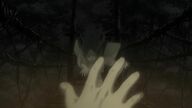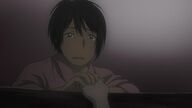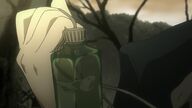But the characters in the play endure silently, never as provocative as in our TV series and movies, or say things that do extraordinary things at every turn.
I remember reading Kawabata Yasunari's novels before, and it almost has this tone. Whether it's a dancer from Izu or a woman from the Snow Country, they all live their lives silently, never thinking about resisting or pursuing anything. It seems that everything is very ordinary, and I don’t want to pursue extraordinary things, live ordinary, and die ordinary.
Men also rarely have great ambitions. Unlike Chinese men, they always talk about being a hero or take it to heart. In fact, we also talk more and do less.
We like to say that since ancient times, we like to show off our past glory, like to exaggerate heroes and then worship them. After all, it is because we are unwilling to accept fate silently. We have always thought that we are masters and take pride in our autonomy.
But who can control their own destiny?
Mao Zedong won the war of resistance for eight years and the civil war for three years, finally allowing the Chinese people to "stand up from now on" and achieve independence. But he can't have the complete family love and peace of mind of ordinary people.
What we worship, what we aspire to, is to be the kind of person who does great deeds and thinks that in order to be great, it is necessary and normal to make sacrifices. Because of other tragedies, the hero's figure has grown even taller. It seems that the reason why a hero is a hero is that his sacrifice is also part of the tall image.
The impression that Japanese culture gives me is that I prefer to have an attitude of appreciation and onlookers, watching what is happening around me and what is happening to me. And we emphasize that "although it is called the destiny, is it not a matter of personnel?"
We are reluctant to accept destiny. Since the Spring and Autumn Period and the Warring States Period, we have become very practical and tenacious. During the Warring States Period, most of our enemies were people, so we knew that as long as we worked hard and were smart enough, we could defeat the enemy even if we were weak for a while. Since then, we have developed the habit of not thinking that God is protecting us, Think we must need God's protection.
The Japanese face more natural disasters and are often powerless, so they have also developed inertia, accepting reality more indifferently than us, thinking that many things cannot be grasped by human beings.
In fact, there are things in life that cannot be controlled by human beings, and things that people can make a difference to. It seems to be the philosophy of the mean that we advocate. . . .
View more about Mushi-Shi reviews











